By The News team
Voting for the 2019 Ryerson Students’ Union (RSU) elections is in full swing, running from March 12-14. The Eye reached out to the candidates running for executive and director positions to learn more about their platforms.
This post will be updated as we receive more responses
Candidates from Inspire did not respond in time for publication
President
What are some specific initiatives you want to implement during your time as president?
Alex Dinh (Independent): I want to introduce an online polling forum to vote on current events which will be accessible online and through designated computers in computer labs.
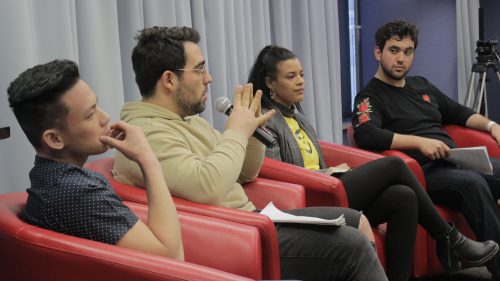
Daniyal Patricio (Rhino Party): I would like to implement three major points: executive spending reform, hire a general manager and lastly create an accountability, integrity, and transparency contract. [In terms of executive reform], executive payments should be frozen for the 2019-2020 school year, executive expense limits should be rolled back, and executives [should] disclose monthly personal expenses.
An explanation of what is being expensed must [also] be provided before purchase, and after a receipt is provided, the executives will be reimbursed. The general manager will be given a probation period upon hiring, and once completed, there will be an employment contract with job security. There should be an integrity, accountability, and transparency contract that all executives need to sign, and they will be required to resign in 48 hours if they violate it. The transparency portion of the contract will involve all credit card statements from RSU credit cards being published online monthly, having receipts provided for purchases with RSU credit cards in one week and banning private Board of Directors meetings.
Vanessa Henry (Refresh): “If elected some of the initiatives I want to implement are in collaboration with the other Executives on my slate. I am really passionate about building the sense of community on campus and highlighting Ryerson’s excellence. With that being said, I would like to collaborate with Ryerson athletics and Refresh’s vice-president of events Joshua Wiggins to ensure that more students are showing up to events by hosting events such as homecoming on campus with the Varsity Basketball team. As a Criminology student, my lens is heavily focused on equity and inclusivity. I believe that knowledge is power and the key to creating change is my educating. One of my goals is to create an educational space with our vice-president of equity Naja Pereira to inform students about equity and how to use proper terminology. This space will also be used to inform the Ryerson community about the work of marginalized communities and how to support and be an active ally. I also want to work with the Equity Service Centres to better promote our American Sign Language classes so we can work towards a more accessible campus.”
How do you plan on being transparent and accountable to students?
Dinh: I want to talk to students before anything is decided. I will implement a system where breakdowns of poll percentages of votes will be viewable by the public at any time.
Henry: “I plan to be transparent with students by holding the all the executives and the Board of Directors accountable for their actions. I will do this by implementing time sheets for the executives to ensure they working the 40 hours they are required to. This is important because it is a paid position and we need to be held accountable for doing the work that we promised we would do. I would also like to implement monthly member meetings, in addition to board meetings, where students have the opportunity to ask executives questions about their initiatives and what student money is being spent on. I believe accountability starts by being informed. So my first day in office I will hire a general manager because there needs to be oversight of the work the executives are doing. Lastly, and most importantly I will ensure that there is proper training for each board member and executive, where we critically go through each bylaw and policy to ensure that they understand their roles and the rules.”
What’s your plan for dealing with the Student Choice Initiatives?
Dinh: If students opt out of the RSU fees, that just means that they were not satisfied with how it is being run. I will work with students to find out what areas they want to see improved until they are satisfied.
Patricio: Students need to be able to trust again. If students believe their money is going to the proper initiatives, which is what did not happen last year. If elected, I would love to work with the current exec team, devising a strategy to help the current students realize how important the RSU is, and why they shouldn’t opt out. An effective, efficient showcase of RSU funded services should put on, but it should really be communicated better with the students.
As well, we need to attract first year students, and help them believe in the RSU as well. Showcasing RSU services during reading week is really important, as the incoming class is the future, and the future is dependent on them.”
Henry: “With Doug Ford wanting to implement a student choice-initiative, the resources that the RSU provides are at risk. With that being said I am against this initiative. Resources like the Equity Centres are focused on helping marginalized communities on campus. These marginalized communities are oppressed and removing these services places that at a greater disadvantage when navigating university. My plan for dealing with students being allowed to opt-in and out of these services is to simply inform students about the resources that the RSU offers. Also, In collaboration with our vice-president of education, Kwaku Agyemang, we will use direct action to rally against the policies that are trying to be enforced. We will connect with universities across ontario to fight these policies and represent the student voices at Ryerson.”
Vice-president operations
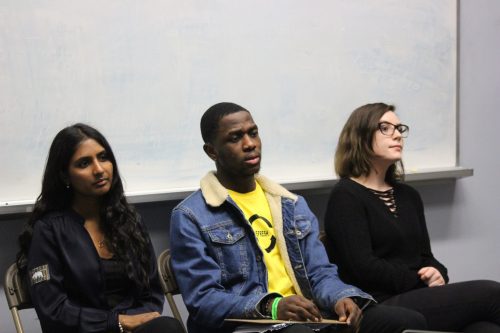
What is your plan for implementing financial transparency at the RSU?
Angelina George ( Rhino Party): “In terms of transparency, executives will be required to present the BOD with monthly RSU expense reports. This report will include expenditure incurred for that month for executive spending, RSU events, any RSU department wise development and enhancement expenses and all other significant expenses related to RSU.
Additionally, we will ban private board of directors meetings. My team and I intend to have open office hours for students to come and ask any questions or express any concerns they have. Execs will be obligated to answer the question and show any backup requested by student. Rhino party is driven by transparency and ensuring students have access to the information they have the right to know.”
Augustine Onuh (Refresh): “Financial transparency has been exponentially lacking in the RSU. I believe that if students are paying such a substantial levy to the RSU they should know where every dollar is being spent. With team Refresh we don’t just preach transparency and accountability, we have a plan to put it in action. We promise to post a bi-weekly updated budget, and all receipts necessary to back our statements up. Finally, I am going to host open office hours weekly where students can make appointments to ask questions on the financial statements that are put out online, because I understand it can sometimes be tricky to understand if math isn’t your forte. In addition to this we will host financial literacy workshops that teach students how to understand budgeting so they have the skills necessary to hold us accountable.”
Why are you running for this position? What do you think you can bring to this role?
George: “For the past two years, I have worked as the finance assistant at RSU. I undergo the daily, monthly and year-end finance activities with the RSU. With the knowledge I have with the RSU’s financial policies, I can ensure all members of the RSU including the Executive team follow the financial policy implemented. I have a well established knowledge on the budget to create a well appropriate budget even with the constraints of the government. I want to use the knowledge I’ve learned to make a difference in RSU, to improve the student life and act in the best interest of the students and students only!”
Onuh: “I didn’t get involved with the Student Union until about a few months ago when I came to the realization that everything about the RSU depends on funds and I couldn’t stand for students being ripped off. There is this say that goes “if you want to get something done you have to get it done yourself,” and that has always been my mentality. As an international engineering student I believe I have that discipline to enforce every single one of my platform points effectively and efficiently. It’s really difficult for international students to be comfortable and feel welcomed on campus because this is a new environment for us and sometimes we struggle for our voices to be heard. I am from Africa and I want to be a voice for international students and bring diversity to the RSU executive team.”
Vice-president equity
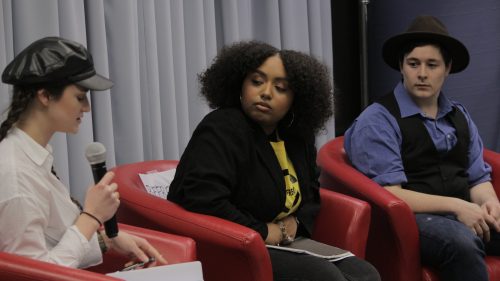
What equity issues do you hope to advocate for this year?
Emily Gioskos ( Rhino Party): “What is really important to note is I’m NOT here to advocate on behalf of others. I’m here to improve and study our diversity survey and reach out to as many people as possible, from every minority group in our diverse community to make sure I’m implementing the change that EVERYONE wants to see.
With that being said, based on the people I’ve interacted with and the articles I’ve read I’m finding all minority groups at Ryerson are searching for representation from faculty. To help provide students who see the lowest representation to find mentors, academic counseling, career inspiration, advice, and a sense of community I will implement Ability, First Nations, Métis, and Inuit, Muslim Women, Black, and LGBTQ2S networking events. My next initiative is to create grants for equity-based projects that help educate, create safe spaces, and improve school to community relationships.”
Naja Pereira (Refresh): “When it comes to equity I don’t think there is a hierarchy. It’s important we advocate for all students. That being said there are some glaring issues at the RSU and Ryerson in general in regards to accessibility, racism, and affordability. As vice-president equity I want to create a list of off campus accessible venues for students. We have seen time and time again it is hard to get space booked on campus so we need to make sure that students know their alternate options where students can not only get in the door but also feel welcome. I also think it’s really important to support the students who are already doing the work. What I mean by this is supporting the Equity Service Centre staff to my utmost ability. These services aid our most marginalized students and should be prioritized since they are community members working for their own community. Because I can’t possibly represent every community I promise to take directive from those who are and uplift their voices instead of speak of behalf of them.”
What would you like to see continued, or changed, from how this role was operated this year?
Gioskos: “I really love that Ryerson champions safe spaces, but I think the biggest problem with the RSU and the equity service centers is that many people don’t understand what they do, how it’s beneficial to them, or how to get involved. If elected I’d like to challenge this and in turn, encourage students to opt in by making myself an accessible resource with regular office hours and quick responses to student emails as well as creating regular outreach events and publicly posting all RSU opportunities to students.”
Pereira: “Preparing for my campaign I reached out to a lot of Equity Service Centre staff to see how they think the role could be improved. I received overwhelming feedback that they do not feel supported. I hope to support these staff and centres and make sure their funding actually goes to them. I also haven’t seen equity campaigns or initiatives this year. I was to run various educational campaigns on accessibility, racism and other issues to make sure students are informed. When we educate students we are more likely to see less microaggressions and instances of oppression on campus.”
Vice-president education
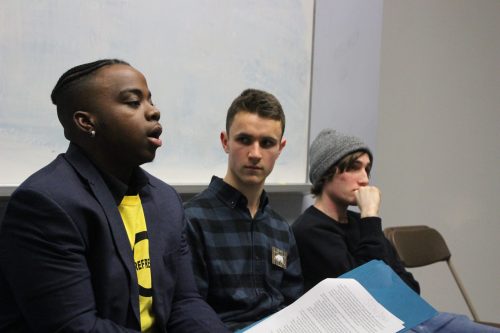
What education issues do you hope to advocate for this year?
Jonathan Bradley (Rhino Party): “One of the education issues I want to address is improving the RU-Pass. I would love to meet with Metrolinx to attempt to have Go Transit join the RU-Pass. I hope to meet with TTC and Go Transit officials to fight for the ability to sell RU-Passes. Another education issue I feel has to be taken care of is creating a 24 hour study space in the Student Campus Centre. The 24 hour study space should be put in the area around where the table tennis tables are, and this sports equipment can be moved to the Ryerson Athletic Centre. The 24 hour study space should include several tables, chairs, stationary supplies, charging stations, snacks, beverages, and a few computers. A third education issue I want to address is Ryerson Debates. Ryerson Debates are where guest speakers with diverse political opinions will be brought in to debate each other to promote freedom of expression and diversity of thought. The guest speakers should cover a plethora of topics students find interesting.”
Kwaku Agyemang (Refresh): “I would like to advocate for supporting students with wrap around expenses, or expenses students absorb after they pay their tuition. These can include, required course textbooks, equipment. thesis, practicum and final year expenses, as well as life expenses after participation in unpaid internships and placement opportunities. These expense are expected of students outside of normal tuition and may prevent students from fully participating in school. My goal is to develop a long term plan to address this issue, however right now I would implement a program to subsidize the cost of required course readings, as well as revitalize the career development grant program to best support students with life expenses when taking unpaid internships/placements.
I will also develop a mentorship program where Ryerson students can connect and network with mentors in their ideal field. Statistically, graduates are more likely to get a job in the field of their choice if they develop a strong network with professionals and Ryerson Alumni.”
What concerns you about the accessibility of education at Ryerson?
Bradley: “The concerns I have about the accessibility of education at Ryerson University, starting off with the price of textbooks. Textbooks have been skyrocketing in price for years, and I believe it can be solved by setting up Open Educational Resources (OERs) for students. OERs will consist of textbooks, lecture notes, and study guides from the courses that are most commonly taken at Ryerson. Another concern about accessibility of education at Ryerson is the struggles students face if they miss a lecture. It might be challenging for students to attend class sometimes, and I would love to start a pilot project for recording lectures. The pilot project will begin with a few professors volunteering to record their lectures, and I hope to roll recorded lectures out over time.”
Agyemang: “I’m afraid that accessibility concerns that are advocated for campus spaces (clubs, study spaces, etc.) outside of the classroom, also aren’t being addressed in the classroom. This includes ASL interpreters, as well as course content that is accessible for students who aren’t able to participate in traditional classroom based activities. It is also concerning that education isn’t moving towards more innovative solutions, like live streamed classes and google hangouts, to make participating in class easier for students who aren’t able bodied. It is important we are introducing these solutions while keeping in mind students who may not be able to participate and that we make sure we are supporting them and not creating new barriers. Id like to work with RyeACCESS so ensure that students have their voice heard and I’m working with the community versus assuming their needs.”
Vice-president student life and events
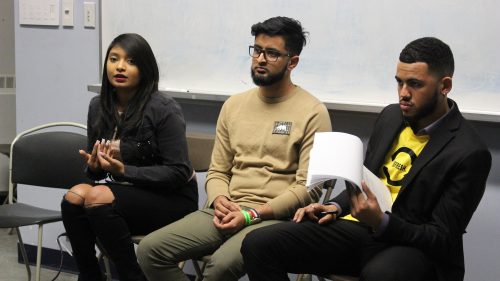
How do you plan to balance student life and events with the cut possible budget cuts (re: student choice initiative)?
Syed Rafay (Rhino Party): “The most important platform to voice student opinions is through communication. By talking to students, whether through surveys, public forums or in person, I plan on gauging student interests and seeing which events students would participate in. Because of the student choice initiative, many events run by the RSU will have to be discontinued. Knowing what most students want, I feel it would be much easier balancing student life with the possible budget cuts.”
Joshua Wiggins (Refresh): “As said in my speech, I believe that student groups as well as the events they throw are essential to student life on campus. Student groups are the backbone of student involvement on campus. I want to make sure that they are supported if they’re are budget cuts, and I promise to prioritize them in our budget. With potential budget cuts ahead I would also like to ensure our students groups are collaborating with one another and that’s why I would like host more student group only socials such as student group speed dating/friending, so student groups get to know each other and promote collaboration and community.”
What events do you plan to organize?
Rafay: “I want to focus on events that promote a sense of community within Ryerson. Some of these events include poetry open mic nights and Learn to Lead workshops, where students can participate in programs designed to assist them in growing confidence and leadership skills. I would also like to plan events for specific departments in order to assist students with growing connections within their [respective] departments.”
Wiggins: “One major thing I would like to do if elected is throw a diverse amount of events. This includes my speaker series where I will bring in politicians, entrepreneurs, CEOs and free thinkers to engage with students at Ryerson. I would also like to throw more events with our Ryerson varsity teams to increase school spirit, include throwing a homecoming with our basketball team as well as meet greets with athletes to promote our teams. More diverse events also means making sure we are organizing both dry and wet events meaning sober students also have a good time. I also want to make sure we are throwing these events during times that commuter accessible. Lastly, making sure that all our events are fully accessible as well safe for all students is a priority.”
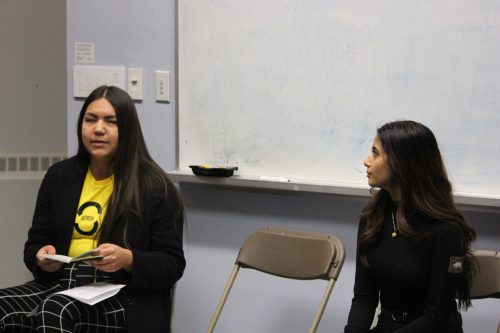
Vice-president marketing
How will you increase student engagement within the RSU?
Vihaan Pereira (Candor): “I strive to revitalize communication channels within the Students’ Union and the membership. I believe that we need to work on stabilizing the RSU brand image. I am looking forward to enable the average student such that they can involve themselves in the RSU by implementing: One: Mandatory 24-hour Responses – Students get the opportunity to reach out to the RSU and will be ensured to receive a response within 24-hours of their query. Two: RSU Pop-Up Booths – booths set up to ensure that students have an open channel to communicate and engage with the representatives of the Students’ Union. Three: SCC311: Open Office Day – monthly drop-in day that encourages students to ensure a transparent and healthy engagement between the membership and the management. Four: RSU Bust Your Stress Day – bi-monthly event that ensures unique programming to help students ‘Bust Their Stress.’
Victoria Anderson-Garner: (Refresh) “One of the main reasons we’ve seen such low engagement and voter turnout is because so few students know about the RSU. Especially with Doug Ford’s student choice initiative, it’s more important now more than ever that students are informed about the importance of their student union. Students don’t engage with the RSU because they don’t know we exist period. Vice-president marketing is a really important position because it can bring awareness to the student body, so many students could be benefiting from our services like the Good Food Center, CopyRITE and our free annual tax clinic. Something the RSU has been failing in doing is general on the ground outreach. I want to make sure our social media is used to bring students in by having more up to date and consistent content. I also want to make sure we’re marketing ourselves by having genuine face-to-face conversations so students can feel connected to the union.”
Abeer Tahir: (Rhino Party) “Many students don’t even know how to get information, much less get involved with the RSU and Ryerson. One of the first things I’d like to do to increase student attendance at events and exposure to the RSU and other student initiatives at Ryerson is to organize a Showcase and Hiring Fair for RSU services and student groups. This will allow students to have more opportunities to get some valuable experience. I’d also like to utilize an online platform that regularly provides students with significant events, upcoming events and regular financial updates in order to increase student involvement and awareness of the RSU.
Through marketing analytics of previous events at RSU, I would determine student needs and where the gap is between the RSU and the students and use marketing strategies that were most effective, as well as specifically target students that haven’t been attending events, or are not reached out to strongly enough.”
Directors
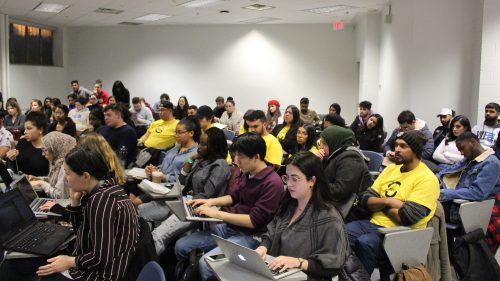
What do you see your role as a director as being?
Brian Baum, Ted Rogers School of Management (Independent): “As a Director, my primary role would be holding the Executive accountable. There have been countless controversies on the RSU over the years. Controversies that have harmed the reputation of both the RSU and Ryerson as a whole on a national level. While the Executive of the RSU does great good for the student body, they occasionally act in a manner that could potentially harm Ryerson. I believe a strong independent Board of Directors is the first, and best, line of defence. Directors must make themselves heard for the student population, to ensure the best interests of the student population is protected. I believe I have the most experience at representing TRSM students and will do everything in my power to make sure the voices of TRSM are heard on the RSU.”
Gyvenska Mathurin, Faculty of Community Services (Refresh): “I see my role as director as a method to remind students that their opinions matter, especially those in programs that are less represented within their faculty. A board director would gather concerns from the student body on issues important to the success of the program and the students and make sure those issues are heard and resolved in a reasonable manner.”
How will you listen to the students you represent?
Baum: “As the person who has represented TRSM on the Senate for the last two years, I have worked on creating a number of initiatives so that students could be better heard by their representatives. One of the main initiatives that I have created is the Student Senate Caucus Facebook page. This is a Facebook page that is managed by the student representatives, so that students have a direct method to contact their representatives. This is something that I would like to bring to the Board of Directors. A method of communication that students can use to directly contact their representatives with any issues they may have, without having to go through the Executive.”
Mathurin: “The students I represent are from the Faculty of Community Services. More specifically, I would be representing students from the School of Occupational Public Health. I would open the line of contact via a Facebook page to get a sense of the needs of the students within the faculty. A monthly check-in with a question on an issue, and collecting the suggestions made by contributors would give me insight into what needs to be brought to the next board meeting. I am also much of the time in contact with students from my faculty. By checking in with these students in daily interactions I have better knowledge of where concerns come from.”
What changes would you like to lead the implementation of, if elected?
Baum: “In the wake of financial controversies plaguing the RSU, and with the current provincial government stripping funding from student union’s like the RSU, I would like to bring financial accountability to the RSU. The RSU provides essential services to university students, especially marginalized students, and without them, many students would not be in a position to succeed. That is why one of the first changes I would bring forward is a cut to RSU campaign funding. When the RSU is at risk of bankruptcy, it makes no sense that the RSU spends $300 per director candidate and $500 per executive candidate to run in the election. When it becomes optional for students to pay fees to the RSU, the RSU must do everything in it’s power to show it’s worth to students.”
Mathurin: “Current issues that require change include Occupational Health and Safety fast-track students having access to a placement or practicum prior to graduation. Many fast-track students take taking the program in order to secure work and begin their careers right away or prepare for graduate school and having some form of experience is important to have even more of an edge when applying for jobs or graduate school. The program has just begun to give students this opportunity, and I would like to make sure that the students can successfully make the transitions they need to have these opportunities, whether it is in course selection support or support in finding paid placements while they navigate their already full semesters.”
Responses have been edited for length and clarity

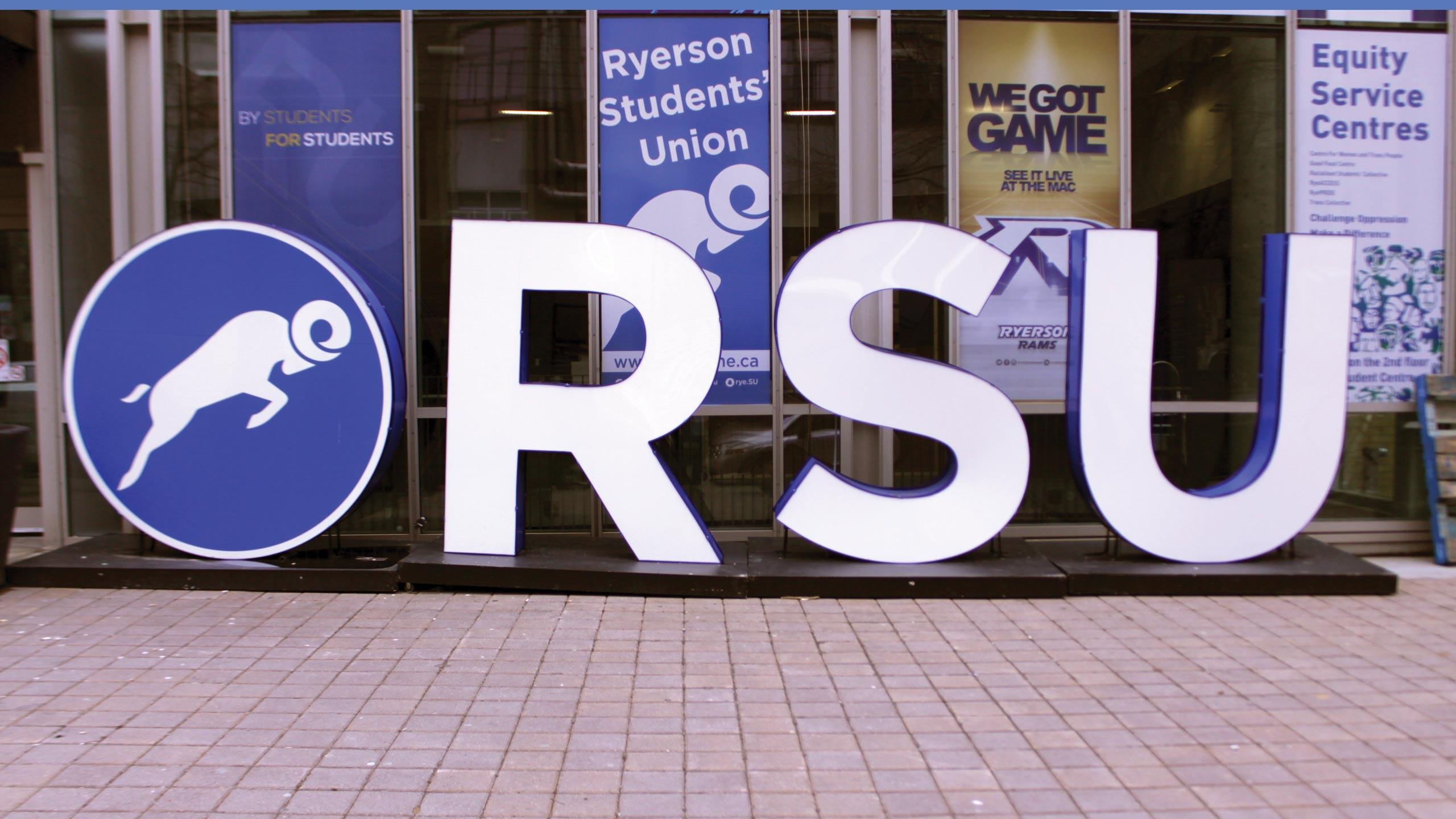





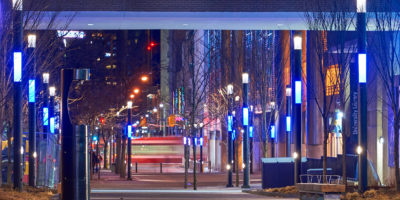


Leave a Reply